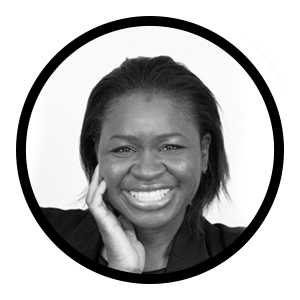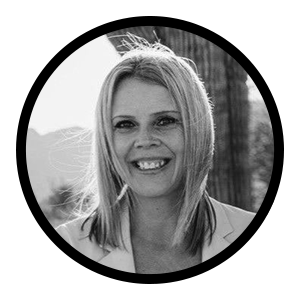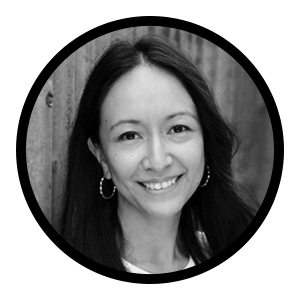“Our world needs massive change. What difference can I make. Is it worth it. But then I heard God speak to me and He said, “you’re just one seed. But I got lots of seeds. If you just keep planting, there will be a harvest.” I am just responsible to sow seeds and plant where I am. I am responsible for my part.”
“In the world so many things have tried to divide. But what I love is that God is reminding us that in Christ that there is a different way. We are all equals. In Christ, we are all children of God. He has no favorites. He loves everybody the same. The church is the only vehicle that brings everybody together as equal. The church plays a critical role because it is the one place that can unite us.”
Hillsong Church is an ethnically and racially diverse church, committed to Biblical reconciliation, healing, and unity. As a global church centered on Jesus and His gospel, we are compelled to ensure that the good news truly is for “all people” (Luke 2:10-11). Through this, we are committed to ensuring that all people experience justice, equity and fairness, inclusion and belonging.
Our mission to be a healthy church changing lives through Christ is foundational to our commitment. We believe, with the Bible as our guide, that Biblical reconciliation, and ethnic and racial healing and unity, are essential components of discipleship.
We believe that reconciliation makes a claim on every person and church as “in Christ God was reconciling the world to himself, not counting their trespasses against them, and entrusting to us the message of reconciliation” (2 Cor 5:19). Through Christ’s gift of reconciliation, we have hope that things do not have to stay as they have been.
We believe that both the church and every individual has been given a mandate for unity. In John 17:21 we see Jesus praying specifically for this: “I have given them the glory that you gave me, that they may be one as we are one— I in them and you in me—so that they may be brought to complete unity. Then the world will know that you sent me.”
We believe we have been given a divine calling to be a foretaste now of who we will be in the end. In Revelation we get a picture of what the end will look like. We see a picture of heaven, where different ethnicities, races and people groups are gathered in unity worshipping God. In Revelation 7:9 it says: “After this I looked, and there before me was a great multitude that no one could count, from every nation, tribe, people and language, standing before the throne and before the Lamb. They were wearing white robes and were holding palm branches in their hands. And they cried out in a loud voice: “Salvation belongs to our God.”
Our prayers of lament for our shared pain filled pasts are anchored in this hope, as is every action we take on behalf of healing and unity. We recognize that ethnic and racial injustice has been a recurring theme in global history. We believe that racism and discrimination are sins and we do not endorse, support or accept any forms, whether implicit and explicit. The very nature of both is an affront to the gospel, and we are committed to a journey of listening, learning, lamenting, and acting to do our part to be the change.
We remain committed to building ethnic and racial reconciliation, healing and unity, both internally and externally across our church. We have committees which have been and will continue to work collaboratively to provide strategic direction to our racially and ethnically diverse global church. We believe we need to work together to collaboratively address issues and concerns and invite you to reach out to us with feedback and ideas. Please e-mail us at [email protected]
Here is an update on the work we have been doing:
We said
We were committed to providing strategic direction to enable us as a global church to make progress in ethnic and racial healing and unity.
What we did
We will
We said
We were committed to discipling our staff and volunteers to increase their awareness and equip them to create ethnically and racially healed and united environments across our church.
What we did
We will
We said
We were committed to improving representation and being a global church, which looks like, and serves its community.
What we did
We will
“Ethnic and racial healing and unity absolutely stirs my heart. Of having been in South Africa for 14 years and seeing the damage of apartheid, there is work to do. There is a lot of work to do globally. We are gonna get there. As a church we should be a part of the change and we are part of the change. The change is so much a part of our current vision of a healthy church changing lives through Christ.”
Global Racial Diversity,
Equity and Inclusion Committee
![]()
Harry Phinda has over 10 years’ experience in campaigning, policy and advocacy. With a background in International Relations, Harry has worked as a Policy Advisor to the UK government, Parliament and numerous International organisations.
![]()
Fadzi Whande is an award-winning Global Diversity and Inclusion Strategist. She has developed and implemented large scale diversity and inclusion initiatives across the not for profit, higher education, government and private sectors globally. Fadzi is the Senior Diversity and Inclusion Adviser at the United Nations Human Rights Office in Geneva, Switzerland.
![]()
Mahlatse Mashua is the regional Director of RZIM Africa and a member of the organization’s global speaking team. He studied biochemistry at the University of KwaZulu Natal before serving as a pastor and elder at Every Nation Church Durban where he was also involved with training the congregation in evangelism and discipleship.

Femi is an award-winning diversity, equity and inclusion specialist. As the Senior Vice President of Global Culture & Inclusion for Kinesso and its sister IPG agencies, Matterkind and Acxiom, Femi’s responsibilities include extending the impact of DEI efforts and championing the companies’ focus on ensuring their data and technology products serve all people in a respectful and inclusive manner. Femi earned her PhD in Psychology at Boston University, her MSc in Cognitive Neuropsychology at University College London, and her BA in Psychology at Cornell University.
![]()
Gary Clarke is the former lead pastor of Hillsong Church London. He has given his life to building the church and helping people. Gary is extremely driven by his passion for people to encounter Jesus, He loves raising up leaders, empowering the next generation, and has a deep drive to help the most marginalised and oppressed people in society towards security and wholeness.
![]()
Darren Kitto is a key member of the Hillsong Global Team. Darren is involved with all of Hillsong’s Local and Global Aid and Development programs helping vulnerable people in the many countries Hillsong has been serving through Aid and Development and Disaster Relief. He has also worked developing the Global Ministry and has been on the Hillsong Team for 25 years.
To reach out with any questions or feedback please email [email protected].

Maria Hansen-Quine is the Global Race Diversity and Inclusion Manager for Hillsong Church. During the past 27 years Maria has worked as a School Counselor and Social Worker in numerous diverse communities and non-profits in the United States and Canada. Maria has authored two children’s books on diversity and racism and is a sought-after trauma and diversity trainer. Maria has an MSW from Rutgers University and a BA in Psychology from Trinity Western University. Maria also has a Diversity, Equity, and Inclusion Certificate from Cornell University, and is a TBRI trained trauma practitioner through the Dr. Karyn Purvis Institute. Diversity and inclusion are deeply personal to Maria, as she and her husband have both a multi-racial and multi-ethnic family, with five different races and seven different ethnicities represented. Maria is passionate about following Je sus, her life looking radically different than she planned. Maria and her husband are the parents to 9 precious jewels, through birth and adoption.
To reach out with any questions or feedback please email [email protected]

Peachy Flores has worked in Human Resources for over 14 years in organizations including Defense Force Recruiting, Commonwealth Bank and now Hillsong as the Recruitment and People & Development Business Partner. She has worked with leaders on Talent & Performance Management, Workplace Relations, Diversity & Inclusion (D&I) and Case Management. She has helped shape and execute diversity strategy for the global HR function within Commonwealth Bank being part of the D&I Council.
“We are not building church for just one person. We are building a church for everyone. We want Hillsong to be a diverse church. We want church to be an open and welcoming place, but also a place of racial healing.”
Harry Phinda, RDI Training, Chair of Hillsong Global Race Diversity and Inclusion Committee
“The beauty of the church lies in its diversity. The diversity of every race, ethnicity and culture. The diversity of every human intentionally and beautifully created by the God of the Universe. It is only when we are all equally included that we fully reflect the image and glory of our Creator God. It is only then that we experience the perfect unity that Jesus prayed for in John 17, before He headed into the Garden of Gethsemane.”
Maria Hansen-Quine, Hillsong Race Diversity and Inclusion Manager
“Our prayer is that God will increase our capacity to deal with racism.”
“One step towards racial unity is to build a church on a platform that represents the church you are trying to create. When people see people of color on platform, they have hope for people who share their race. Representation creates safety for all people.”
Fadzi Whande, RDI training, Hillsong Race Diversity and Inclusion Committee Member
Australian Reconciliation
Action Plan Committee members
![]()
Pastor’s William & Sandra Dumas are the Senior Ministers of Ganggalah Church, Ganggalah Training Centre, and Ganggalah Aboriginal Arts, based in the beautiful Tweed Heads region of Northern NSW – Bundajlung Country. They are also the National Leaders of the Australian Christian Churches, Indigenous Initiative Committee.
Both William & Sandra know God has a mandate on their lives to “raise” up the next generation of Indigenous leaders in our Nation, who are comfortable with their identity as Indigenous Christian leaders.
![]()
Robyn Ober is a Mamu/Djirribal woman from the rainforest region of North Queensland. She is employed as a research fellow with Batchelor Institute of Indigenous Tertiary Education and has recently completed her PhD studies focusing on ‘Aboriginal English as a Social and Cultural Identity Marker in an Indigenous Tertiary Educational Context’. Robyn has an extensive educational background, teaching in early childhood, primary and tertiary sectors in remote, rural and urban contexts. She has a strong interest in both-ways education, educational leadership and Indigenous Australian language in particular, Aboriginal English. Robyn has undertaken several research projects focusing on these topics and has published papers in educational and linguistic journals, both nationally and internationally.
![]()
Benny Eggmolesse has over 10 years’ experience heading up Indigenous Workforce Development for organisations such as HealthShare NSW and St Vincent’s Health Australia and achieving monument growth for both organisations seeing him nomination for SVHA Innovative and Excellence Awards 2017. Since then Benny has expanded into business development owning AAK-ITHER, Ice Cream Productions and Yawul.
Frequently Asked Questions
As a member of our church, you are a key part of this journey. We are continually learning and would welcome any feedback experiences or insights which would be useful in implementing our plans or realizing our goals as a church. Please continue to pray for us as a committee, that we are led by the word and the holy spirit in supporting our church with our skills and experience.
Scripture references both equality and equity as aspects of true justice used throughout the Bible in various contexts. Biblical equality speaks to people’s fundamental sameness as image-bearers of God as well as ensuring that uniform standards, rules, and laws are used for everyone. Likewise, Biblical equity roughly corresponds to what people would call “fairness” today. This involves taking people’s needs and circumstances into consideration when they are relevant as well as remaining impartial when people’s needs, and circumstances are irrelevant.
The principle of equality is referenced throughout the Bible starting with the foundational truths that we are all created equally in God’s image (Genesis 1:26-27, Proverbs 22:2, Romans 10:12), we all have sinned and fall short of the glory of God, and we can each equally come and receive his redemption regardless of who we are. (Acts 15:11, Galatians 3:28).
The principle of equity is also referenced throughout the Bible, the following scriptures being especially noteworthy for our conversation:
The Bible calls us to pursue justice that honors both principles of equity and equality. As a committee, we refer to racial equity instead of racial equality because we recognize that the sin of racism requires intentional actions on our part to create a racially just and equal world.
Our position on healing and unity is firmly grounded on the truth of scripture. God’s original intent and design for humanity was established in creation where everything existed in a state of shalom— wholeness, harmony, and sinless perfection. In that environment, humanity was created in the image of God and given equal worth, value, and dignity (Genesis 1:26-27). Subsequently, the image of God in humanity (imago Dei) was marred by sin, and people were divided by the Fall (Genesis 4). Fallen people organized societies and perpetuated cycles and systems of brokenness, which continues to be expressed in our communities, institutions, and nations (Genesis 11, Exodus 1-12; 2 Chronicles 7:14, Isaiah 25:7-8; 65:17-25). Prejudice, racism, oppression, and injustice are the fruit of sin (James 2:9). The gospel is the ultimate solution to sin, and when believed, it changes the human heart and empowers the believer to engage in the work of shalom— restoring the world to God’s original intention. In Christ, we have been made a new creation, and this distinction is of primary importance (Galatians 2:28). Though we have been made one new humanity in Christ, our ethnic distinctions are not dissolved but rather are acknowledged throughout the New Testament (Acts 13:1, Revelation 5:9, 7:9-10.) The work of healing and unity is gospel work, and it involves imaging God, standing for truth and justice, and working for the flourishing of every person in our communities (Luke 4:18; 2 Corinthians 5:11-21, John 17:2-23).
As a church we are committed to fostering healthy and safe conversations about healing and unity within our community. Those conversations often require courage and empathy. Healthy conversations start with the principle from Matthew 7:12, ‘Do unto others whatever you would like them to do to you.’ The essence of this scripture is to place yourself in the shoes of another, expressing empathy, seeking to understand, be prepared to listen, and lead with compassion. We recognize that these conversations can be sensitive and often require courage and should you need further guidance please reach out to your local campus pastor.
At the highest level of leadership, we recognize the importance of continuing these conversations, which is why we have seated committees, and are continually working towards improvements. We are also committed to equipping our pastors, staff, and volunteers by providing training and resources.
Music
Worship
United
Young & Free
Kids
Events
Hillsong Conference
Tours
Locations
Africa
Kenya
Mauritius
South Africa